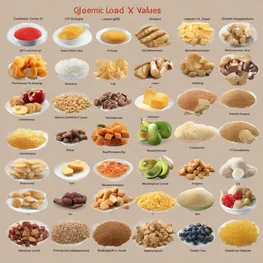Table of contents
- Understanding Insulin: The Control Tower of Blood Sugar Management
- Understanding Glucagon: Insulin's Opposite
- Unlocking the Secrets: Lesser-Known Hormones and Their Impact on Blood Sugar
- How to Achieve and Maintain Hormonal Balance for Blood Sugar Control
In the intricate process of blood sugar regulation, hormones play a vital role. From insulin to glucagon, these powerful messengers have the ability to control glucose levels in our bodies. Understanding how hormones influence blood sugar can help us better manage conditions such as diabetes and pave the way for innovative treatments. This article delves into the intricate dance between hormones and blood sugar regulation, shedding light on their crucial role in maintaining a healthy balance.
Understanding Insulin: The Control Tower of Blood Sugar Management
Insulin plays a crucial role in regulating blood sugar levels by acting as the control tower of blood sugar management. It is produced by the pancreas and helps to lower blood sugar levels by allowing glucose to enter cells. Insulin also helps to store excess glucose as glycogen in the liver and muscles, which can be used as a source of energy when needed. Without insulin, blood sugar levels can become dangerously high, leading to a condition known as hyperglycemia. Overall, insulin is essential for maintaining stable blood sugar levels and ensuring the proper functioning of the body's cells and organs.
Understanding Glucagon: Insulin's Opposite
Glucagon plays a crucial role in maintaining blood sugar levels when they are low. Understanding the role of glucagon is essential in comprehending its opposition to insulin.
-
Glucagon release
When blood sugar levels drop, the pancreas releases glucagon, a hormone produced by alpha cells in the islets of Langerhans. Glucagon acts as a signal to the liver to convert stored glycogen into glucose and release it into the bloodstream.
-
Glycogenolysis
Glucagon stimulates glycogenolysis, which is the breakdown of glycogen into glucose. This process occurs primarily in the liver. Glycogen serves as a storage form of glucose, and glucagon triggers its conversion into usable glucose when blood sugar is low.
-
Gluconeogenesis
Another crucial role of glucagon is to stimulate gluconeogenesis. Gluconeogenesis is the production of glucose from non-carbohydrate sources, such as amino acids and glycerol. By promoting gluconeogenesis, glucagon helps increase blood sugar levels.
-
Insulin and glucagon balance
Insulin and glucagon work in a finely tuned balance to regulate blood sugar levels. While insulin lowers blood sugar by facilitating the uptake of glucose into cells, glucagon raises blood sugar by promoting the release of glucose into the bloodstream. This delicate interplay ensures the stability of blood sugar within a narrow range.
-
Regulation of glucagon secretion
The release of glucagon is tightly regulated by various factors, including blood sugar levels, amino acids, and the sympathetic nervous system. Low blood sugar levels, or hypoglycemia, act as the primary signal for glucagon secretion. As blood sugar rises, insulin secretion is stimulated, which suppresses glucagon release.
Unlocking the Secrets: Lesser-Known Hormones and Their Impact on Blood Sugar
Cortisol, commonly known as the stress hormone, plays a crucial role in regulating blood sugar levels. When faced with stress, cortisol is released, which triggers the liver to release glucose into the bloodstream. This increase in blood sugar provides the body with immediate energy to deal with the stressor. However, prolonged exposure to cortisol can lead to chronically elevated blood sugar levels, increasing the risk of developing conditions like diabetes. Understanding cortisol's impact on blood sugar can help manage stress levels and maintain healthy glucose levels.
How to Achieve and Maintain Hormonal Balance for Blood Sugar Control
Maintaining hormonal balance is crucial for managing blood sugar levels effectively. By following these actionable tips, you can achieve and maintain hormonal balance, which is essential for blood sugar control:
- Eat a balanced diet: Include foods that are low in sugars, processed carbohydrates, and unhealthy fats. Opt for whole grains, lean proteins, fruits, vegetables, and healthy fats like avocados and nuts.
- Exercise regularly: Engage in physical activity for at least 30 minutes a day. Exercise helps regulate insulin levels, improves insulin sensitivity, and promotes hormonal balance.
- Manage stress: Chronic stress can disrupt hormonal balance. Practice stress management techniques such as meditation, deep breathing exercises, yoga, or engaging in hobbies to reduce stress levels.
- Get enough sleep: Lack of sleep can affect hormone production and regulation. Aim for 7-8 hours of quality sleep every night to promote hormonal balance.
- Maintain a healthy weight: Excess body weight can impact insulin resistance and hormonal balance. Maintain a healthy weight through a combination of healthy eating and regular exercise.
- Limit alcohol consumption: Excessive alcohol consumption can disrupt hormonal balance and affect blood sugar levels. Drink in moderation or consider avoiding alcohol altogether.
- Stay hydrated: Drinking enough water is essential for hormone production and regulation. Aim for at least 8 glasses of water per day to maintain hormonal balance.
- Avoid smoking: Smoking can adversely affect hormone levels and increase the risk of insulin resistance. Quitting smoking is beneficial for both hormonal balance and blood sugar control.
- Consult a healthcare professional: If you are experiencing hormonal imbalances or struggling with blood sugar control, seek guidance from a healthcare professional. They can provide personalized advice and recommend appropriate treatments or medications if necessary.
In conclusion, hormones play a crucial role in regulating blood sugar levels in the body. Insulin, produced by the pancreas, helps to lower blood sugar levels by promoting glucose uptake into cells. Glucagon, also released by the pancreas, stimulates the release of stored glucose from the liver to increase blood sugar levels when they drop too low. Additionally, cortisol, growth hormone, and adrenaline can all affect blood sugar levels in various ways. Overall, hormonal regulation is essential for maintaining a delicate balance of blood sugar levels and ensuring the body's energy needs are met.
Frequently asked questions related to hormones and blood sugar regulation
What are hormones?
Hormones are chemical messengers produced by the endocrine glands in the body. They travel through the bloodstream to various organs and tissues, where they regulate physiological processes and maintain homeostasis.
How does insulin resistance develop?
Insulin resistance occurs when cells in the body no longer respond effectively to the actions of insulin. This can happen due to various factors, including obesity, physical inactivity, poor diet, and genetics. Over time, the pancreas compensates by producing more insulin to overcome the resistance, but eventually, it may become overwhelmed, leading to high blood sugar levels and the development of type 2 diabetes.
How do hormones regulate blood sugar levels?
Insulin and glucagon are two hormones that play a key role in blood sugar regulation. Insulin is released by the pancreas when blood sugar levels are high. It helps cells take up glucose from the bloodstream and promotes its storage as glycogen in the liver and muscles. On the other hand, glucagon is released by the pancreas when blood sugar levels are low. It stimulates the breakdown of glycogen into glucose and increases the release of glucose into the bloodstream.
Are there any other hormones involved in blood sugar regulation?
Yes, other hormones such as cortisol, epinephrine, and growth hormone also contribute to blood sugar regulation. Cortisol, often referred to as the stress hormone, increases blood sugar levels by promoting glucose production in the liver. Epinephrine, also known as adrenaline, increases blood sugar levels during the fight-or-flight response. Growth hormone helps maintain blood sugar levels during periods of fasting.
What happens when there is an imbalance in hormone production?
An imbalance in hormone production can lead to blood sugar dysregulation. If there is insufficient insulin or if cells become resistant to insulin, blood sugar levels can rise, resulting in hyperglycemia (high blood sugar). On the other hand, if there is excess glucagon or if the liver fails to respond to glucagon, blood sugar levels can drop, leading to hypoglycemia (low blood sugar). Both hyperglycemia and hypoglycemia can have adverse effects on health.
Can hormonal imbalances be treated?
Yes, hormonal imbalances can often be treated through lifestyle changes, medication, or hormone replacement therapy. For example, in the case of insulin resistance and type 2 diabetes, lifestyle modifications such as regular exercise, a healthy diet, and weight loss can help improve insulin sensitivity. In some cases, medication or insulin therapy may be necessary to manage blood sugar levels.







